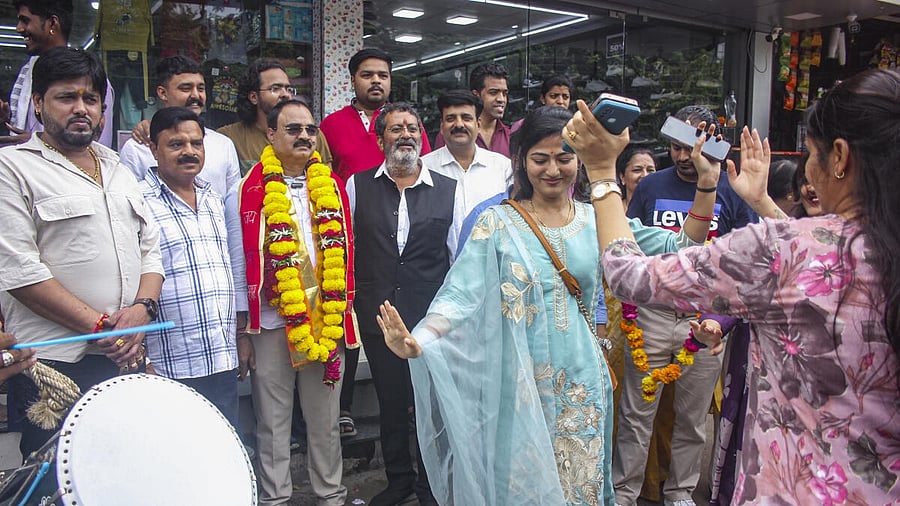
Malegaon blast verdict: All seven acquitted
Credit: PTI photo
Mumbai: In a stinging observation while pronouncing acquittal of the seven accused in the 2008 Malegaon blast case, the Special Court of the National Investigation Agency observed that when contradictions in the testimony raise doubts regarding the veracity of the prosecution’s version, it would be unsafe to rely on such evidence.
“Though, the testimony of police witnesses suggest that they were consistent and meticulous in detailing the procedural aspect concerning the recording of statements, arrest and recovery of articles, but the overall evidence does not inspire sufficient confidence to warrant conviction,” Special Judge Abhay Lahoti has observed in the 1,076-page judgement.
The case was initially investigated by the Anti-Terrorism Squad of Maharashtra Police and later the National Investigation Agency - and there are several differences in finding of the two agencies.
On the ATS and NIA findings, the court said: “ATS and NIA conducted independent investigations and submitted separate charge-sheets upon completion thereof.
"However, the allegations of misconduct, torture, illegal detention have been levelled exclusively against ATS officers and no such accusations have been made against any officer of the NIA.
"Thus, pointing out the treatment given by ATS officers to the witnesses is self-sufficient which raises serious concern and credibility of evidence collected by ATS officers during the course of investigation.”
In the acquittal order, the court said that in the backdrop of the facts, it is also necessary to mention that the evidence on record creates the grave suspicion against the accused but mere on suspicion there cannot be a conviction. “Hence, I am extending the benefit of doubt,” Special Judge Lahoti said.
Reasoning further, Special Judge Lahoti noted: “It is necessary to place on record the fact that, I am fully aware of the degree of agony, frustration, and trauma caused to society at large and, more particularly, to the families of the victims by the fact that a heinous crime of this nature has gone unpunished.”
However, the law does not permit courts to convict an accused solely on the basis of moral conviction or suspicion.
“No doubt, the terrorism has no religion because no religion in the world preaches violence. The court of law is not supposed to proceed on popular or predominant public perceptions about the matter. It is a cardinal principle of criminal jurisprudence that the burden rests entirely upon the prosecution to establish the guilt of the accused beyond reasonable doubt, based on admissible and credible evidence.
While rejecting the evidence presented by ATS and NIA, the Special Judge said: “Upon a comprehensive evaluation of the entire evidence available on record, I am of the considered view that the prosecution has failed to adduce cogent, reliable, and legally acceptable evidence. The testimony of prosecution witnesses is riddled with material inconsistencies and contradictions. Such discrepancies undermine the credibility of the prosecution's case and fall short of establishing the guilt of the accused beyond reasonable doubt.”